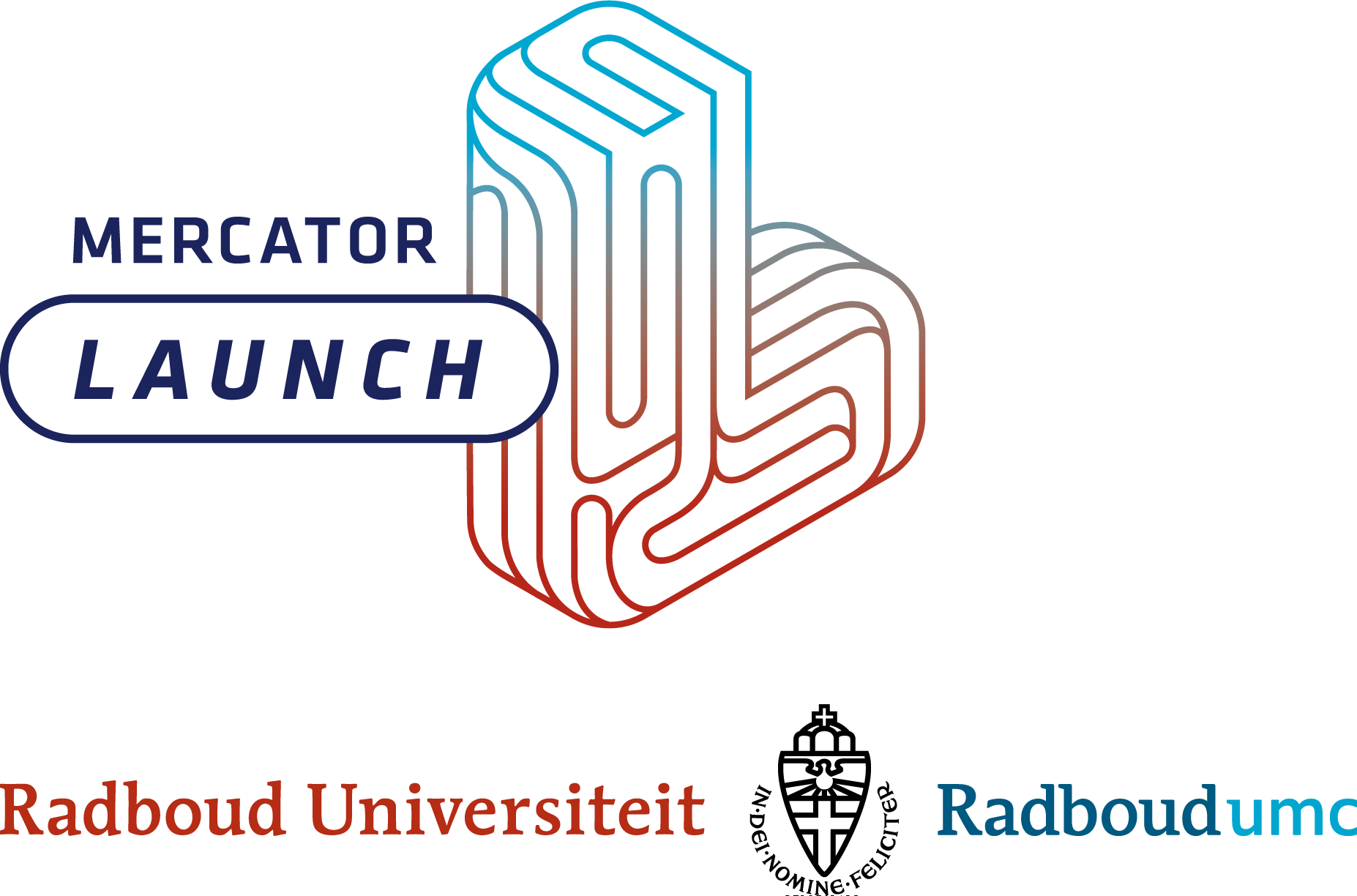
Adjmal is one of the founders of MindTrace, a company that offers a remote prototype testing tool so you can optimize your content before you publish it. Their technology turns a webcam into an entire testing lab. We are very curious to find out what Adjmal has been up to and what he is working on right now!
We have known each other for a couple of years now and you were there at the start of Mercator Launch. Why do you think it is so important that Mercator Launch was founded?
“Back when I started my company, I could have really used the services that Mercator Launch offers right now. The services and programmes Mercator Launch provides are a valuable addition to the university as it allows people to build something real. I also feel like Mercator Launch created the perfect startup atmosphere right away, because the way the team works is the exact same way as a startup would. Full of passion, enthusiasm and ambition! Business coaches Rob, Brechtje, Britta and Ed helped me get into touch with people in their network, which was great. I really had the pleasure of watching Mercator Launch grow into the professional company it is now.”
How are things at MindTrace?
“Things are going well at MindTrace. There will be some changes in the company though, because I decided to look for a new challenge. I still love the technology behind MindTrace and firmly believe in our business model, but continuously working on the company caused me so much stress that I decided it is time for something new.”
Does leaving MindTrace mean that you are quitting the business world altogether?
“No, definitely not! MindTrace is doing very well at the moment, so getting out of a successful business does not feel like a failure to me. I have been debating with myself whether entrepreneurship suits me or not, but at the moment I am very convinced that I will not stop being an entrepreneur! But I would like to do something else. One of the things I want to keep working on is my podcast about the intersection of science, technology and business. That is a very interesting domain because when you discover something new in science, how do you build technology around it and create a business model that works? Take for example speech recognition. First, scientists will try to segment and understand language on a theoretical level. Once they discover something new, you need to decide: how fast do you move to the market? How do you build your business around that? This trajectory really interests and fascinates me: how do you make sure that your science, tech and business (people) work well together? Do all people involved speak the same language? Topics like these make me so curious, and that’s why I want to keep talking to people on my podcast.”
What are your plans for the future?
“I am on the job market again. It is a very interesting process as I have not had to apply for a job in such a long time. Being an entrepreneur, I sometimes felt like a generalist. I was not particularly good at one specific thing, which can feel weird. On paper I know what I am worth and what I am qualified to do. I have also some programming abilities, but to me that feels so normal that I do not see it as a special skill, especially not one that could land me a job. I started looking at my skill set differently and figured out what I could offer a company, which got me looking in the direction of Data Science or Product Management. These jobs are often a combination of working with products, lots of contact with people, possibly some programming and thinking creatively about solutions. All things I love to do! And most of these skills I learned while being an entrepreneur!”
What was the most valuable lesson you’ve learned as an entrepreneur?
“I learned two very valuable lessons I would like to share. The first is: don’t wait. If you are not happy with something your programmer created or there are errors in your financial model, you need to communicate that right away. You need to prevent yourself from carrying around stress and frustration. Make sure to communicate respectfully and open, and don’t be afraid to contact people if you have questions for them. This is also true for when you do like something a lot, communicate it and don’t wait!
The second lesson is to focus on people, not on technology. Technology is obviously very important, but if people do not understand it or do not need to use it, the technology becomes useless. And if you don’t understand your user, then you can’t let the technology fit their needs. You need to validate to see whether your technology matches the need of your users, so: people come first. Always. Being a techie myself, it took me a long time to understand this. You need to get past your enthusiasm for your product, and listen to the people and what they want. Only then your business will be successful!”
Do you have a tip for entrepreneurs (to be) who want to turn their passion into their job?
“Never base your job or company solely on your passion. A lot of people think, passion comes first, skills second. But I think you should follow your skills and let the passion arise from there. Passion always sounds positive, but the thing with passion is that it can make you super happy but also super frustrated. If you do something you do not care about, you will feel less stress when something goes wrong. Only when you work with your passion do you feel such highs and lows. So, my tip would be: follow your skills and start from there. Of course, you still need a base of passion to build on, but just make sure you do not build your business on passion alone. Surround yourself with a good team, atmosphere and dynamic. Ask yourself the question: why do I want to start this business? Is it worth starting this, even if it doesn’t work out in the end? If the answer is yes, then go for it! It means you have the right entrepreneurial drive for your business.”
Why do you think it is important to celebrate successes?
“Because successes are rare. A friend once said to me: “dude, you gotta celebrate your successes, because the rest of the time you will be eating shit.” When you celebrate your successes, you literally take a step back and look at the bigger picture of where you are at that point. Successes are not the rule, they are the exception. And celebrate your successes together! Everyone has played their part, so involve your whole team in the celebration process!”
Curious about Adjmal’s podcast? Go check it out at www.adjmal.com.
